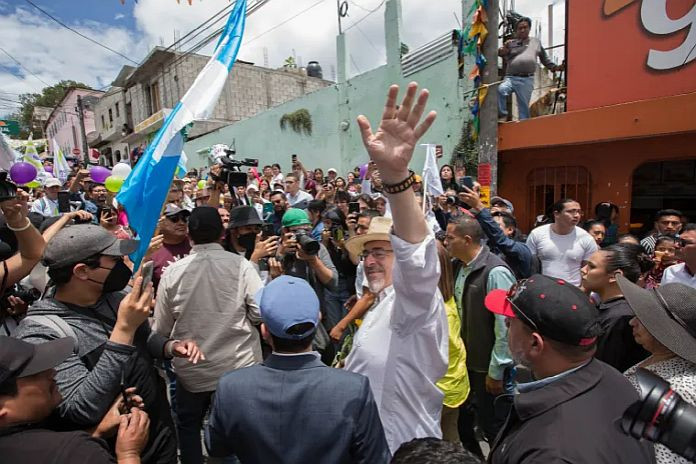GUATEMALA CITY, Guatemala, (teleSUR) – On Sunday, Guatemala will hold the most controversial electoral process since the start of the democratic era in 1986. The presidential runoff will take place between former First Lady Sandra Torres and academic Bernardo Arevalo.
This Central American country is currently experiencing a period of high political and social tension due to the August 20 elections, which will determine the president for the 2024-2028 term, replacing president Alejandro Giammattei.
The situation was ignited by the surprising second-place finish of Arevalo and his SEED party (Semilla) in the first round of elections held on June 25. This came as a surprise as earlier polls had placed him in eighth position.
Since Arevalo advanced to the runoff, the public ministry, led by prosecutors sanctioned by the United States, has attempted to eliminate his candidacy. If he wins, it will mark the beginning of Guatemala’s first progressive government.
“This is not a typical second round. We faced a legal challenge that left us with doubts as to whether there would even be a runoff. Thus, we are witnessing an election marked by attacks against the SEED movement,” said political analyst Marielos Chang.
Pursuit of the presidency
Sandra Torres, who was married and later divorced from the late former president Alvaro Colom, has reached the runoff twice before, in 2015 and 2019. However, she suffered significant defeats on both occasions.
She underwent a sudden transformation, shifting her political orientation overnight to prioritize the Guatemalan family’s conservative values.
Chang warns that the victory of Torres “would mean a continuation of the Giammattei administration,” the current president whose tenure has faced criticism for the criminalization of judges, journalists, and candidates.
Political analyst Renzo Rosal shares a similar view, considering the former wife of president Álvaro Colom (2008-2012) as the “continuation of the current system” in Guatemala.
“She took up this baton, and now with even greater strength as she faces the SEED movement,” explains the political analyst, referring to Torres, who was accused in 2019 of illegally financing her election campaign.
Regarding Bernardo Arevalo, Chang recalls that “at the start of the campaign, he wasn’t standing out but now he has managed to position himself as a leader capable of reconciling different sectors.”
The latest survey by CidGallup places Arevalo ahead of Torres with a margin of 60 to 70 percent of the votes. However, many sectors fear that a victory for the SEED candidate may not guarantee his inauguration on January 14 due to attacks from his right-wing adversaries.
“The public ministry has played a combative role beyond its scope. Negative roles have also been played by the courts, the presidency, and some factions of the Congress,” says Rosal.
The decision of who will lead the Guatemalan state for the next four years rests in the hands of the 9.3 million citizens with the right to cast their votes on Sunday.






